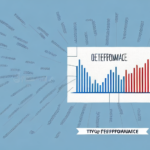The Current State of the Logistics Industry Job Market
The logistics industry continues to be a vital component of the global economy, consistently showing robust job growth. According to the Bureau of Labor Statistics, employment in the transportation and warehousing sector increased by 2.3% in the past year, outpacing the national average. This growth is driven by the expanding complexities of global supply chains and the increasing demand for efficient goods movement.
The acceleration of e-commerce due to the COVID-19 pandemic has further fueled the demand for logistics professionals. Companies are intensifying investments in logistics operations to meet the surge in online orders, resulting in heightened opportunities in areas such as inventory management, transportation planning, and warehouse operations.
Technological Advancements Shaping Logistics Employment
Automation and Robotics
Automation and robotics are revolutionizing the logistics sector by streamlining operations and reducing human error. Automated systems are now commonly used in package sorting, inventory management, and distribution centers, enhancing efficiency and accuracy. While some entry-level positions may decline, there is a growing demand for roles that focus on overseeing and maintaining these advanced systems.
Artificial Intelligence and Data Analytics
Artificial Intelligence (AI) and data analytics are becoming indispensable in logistics, enabling companies to optimize supply chain management and predict potential disruptions. Professionals skilled in data analysis, machine learning, and software programming are increasingly sought after to interpret vast amounts of data and drive informed decision-making.
For instance, AI-powered predictive analytics can forecast demand trends, allowing companies to adjust their logistics strategies proactively. This not only enhances operational efficiency but also reduces costs and improves customer satisfaction.
The E-Commerce Boom and Its Impact on Logistics Jobs
Increased Demand for Warehousing and Transportation
The exponential growth of e-commerce has led to a surge in demand for logistics professionals, particularly in warehousing and transportation. With consumers expecting faster delivery times, companies are expanding their warehousing capabilities and enhancing their transportation networks to ensure timely order fulfillment.
Adoption of Innovative Delivery Solutions
E-commerce companies are investing in innovative delivery solutions such as drones and autonomous vehicles to meet the high-speed delivery expectations of consumers. These technologies not only improve delivery times but also reduce operational costs, creating new job opportunities in areas like drone operation and autonomous vehicle maintenance.
Sustainability as a Key Driver in Logistics Hiring
Sustainability is increasingly becoming a critical factor in logistics hiring trends. Companies are striving to minimize their environmental footprint by adopting green logistics practices, such as using alternative fuels, optimizing transportation routes, and implementing waste reduction initiatives. This shift has led to a higher demand for professionals with expertise in sustainable logistics and renewable energy technologies.
Moreover, implementing sustainable practices not only benefits the environment but also enhances operational efficiency and reduces costs. Companies are recognizing the financial advantages of sustainability, which further drives the need for skilled professionals in this domain.
The Growing Importance of Data Analysis in Logistics
Data analysis plays a pivotal role in optimizing logistics operations. By leveraging big data, logistics companies can gain valuable insights into customer behavior, supply chain efficiency, and potential disruptions. Professionals proficient in data analytics tools such as Excel, SAP, and Oracle are highly sought after to interpret data and implement strategies that enhance operational performance.
Data-driven decision-making enables companies to anticipate market trends, manage inventory more effectively, and improve overall supply chain resilience. This emphasis on data analytics is shaping the future of logistics employment, making it a critical skill set for professionals in the industry.
Globalization and Its Effect on Logistics Hiring Patterns
Globalization has significantly influenced logistics hiring patterns by expanding the scope of supply chains across international borders. Logistics companies are now seeking professionals with expertise in global trade regulations, multilingual capabilities, and cultural competencies to manage complex international operations.
The rise of cross-border e-commerce has further emphasized the need for skilled logistics professionals who can navigate the challenges of global supply chains, including compliance with diverse regulatory environments and the coordination of international transportation networks.
Emerging Job Opportunities in the Logistics Industry
The logistics industry is continually evolving, with emerging fields creating new job opportunities. Areas such as drone logistics, urban logistics, and green logistics are at the forefront of this evolution.
- Drone Logistics: The use of drones for delivery requires specialized roles such as drone pilots and operators.
- Urban Logistics: Solving last-mile delivery challenges in densely populated areas demands expertise in urban planning and efficient delivery system design.
- Green Logistics: Professionals focused on sustainable practices are essential for implementing eco-friendly logistics solutions.
These emerging sectors not only create new job roles but also require a blend of traditional logistics knowledge and innovative technological skills.
The Role of Education in Future Logistics Careers
Education plays a crucial role in preparing individuals for successful careers in the logistics industry. Diverse educational pathways, including apprenticeships, diplomas, and degrees in logistics, supply chain management, business, and engineering, provide the foundational knowledge and skills required in this field.
As the industry evolves with new technologies and practices, ongoing professional development and specialized training are essential. Advanced degrees and certifications can enhance career prospects, enabling professionals to qualify for management and leadership positions within logistics organizations.
Investing in education and continuous learning equips individuals with the expertise needed to adapt to industry changes and drive innovation within their organizations.
The Future of Automation and Artificial Intelligence in Logistics
Automation and Artificial Intelligence (AI) will continue to shape the future of the logistics industry. Automated systems are enhancing efficiency in areas such as package sorting and inventory management, while AI is optimizing supply chain planning and demand forecasting.
Despite concerns about job displacement, automation is expected to create new roles that require technical expertise and system management skills. Professionals who can develop, implement, and maintain automated and AI-driven systems will be in high demand.
Furthermore, advancements in robotics and AI are anticipated to revolutionize last-mile delivery and warehouse operations, leading to increased productivity and reduced operational costs.
Overall, the integration of automation and AI presents significant opportunities for growth and innovation in the logistics sector, driving the need for a skilled and adaptable workforce.






















